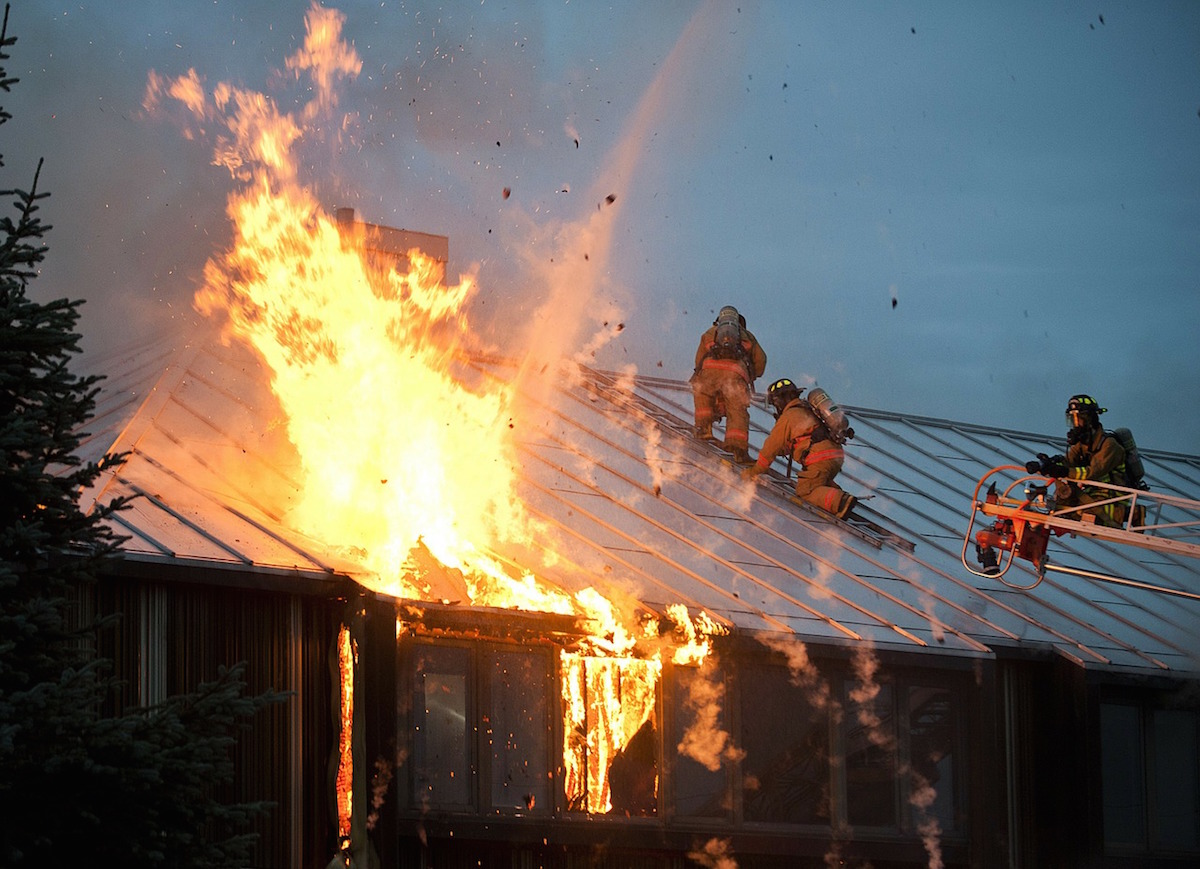In Compliance column in the May/June issue of NFPA Journal, Ron Coté, Principal Life Safety Engineer at the National Fire Protection Agency, debunks two myths regarding NFPA 101, Life Safety Code.
The first myth is that all assembly occupancy rooms with an occupancy load more than 50 must have a second egress door. This is not true, although many do have second exit access doors “in order not to violate the common path of travel limitation,” Coté writes.
For most room locations and arrangements, a second exit access door from the room can be positioned to provide occupants with a second travel path. The presence of the second exit access door can reduce what would otherwise be an excessive common path of travel to one that is within the permitted distance.
Coté also debunks the myth that exit signs are required at exits only. The signs are actually required in three locations: at exits, in the exit access, and in exit access corridors of new construction. They are required in the exit access when the exit or way to reach the exit is not readily apparent, as might be the case where additional turns in the egress path are needed to reach an exit.
They may also be needed when in exit access corridors of new construction no point is in excess of the particular sign’s rated viewing distance or the 100-foot (30-meter) default value, whichever is less, from the nearest sign.
Related Stories
| Jan 30, 2012
ZigBee and ISO 50001: Two new standards to make buildings greener
These developments demonstrate the dynamic nature of the market and the continued need for development of program standards of many different types that help builders and owners translate high performance and sustainable buildings goals into practical measures on the ground.
| Jan 30, 2012
New firm-fixed-price rules on federal contracts impact construction industry
Contractors will need to be on the lookout for policies such as the Contractor Accountability for Quality clause.
| Jan 30, 2012
Roofer’s fatal plunge demonstrates need for fall-prevention regulations
“The biggest problem is getting our workers to use the equipment,” says Michael J. Florio, executive director of the organization.
| Jan 26, 2012
Tampa moves to streamlined online permitting system
The system will replace an inefficient patchwork of old software and is designed to provide businesses, homeowners, and contractors with online access to permitting and licensing information.
| Jan 26, 2012
EPA to collect more data, seek comments before finalizing mud rule
The EPA says it will seek more data and is accepting comments until March 5.
| Jan 26, 2012
Industry challenges Connecticut's suit over defective construction work
The dispute arose over multimillion-dollar leaks at the University of Connecticut's law library.
| Jan 26, 2012
Earthquake 'fuse' could save buildings during temblors
The idea is to use an earthquake "fuse" that can prevent the tiny fractures and warps that make structures unsafe after a quake and very expensive to repair.
| Jan 26, 2012
HPD open materials standard for green building materials gains momentum
GreenWizard, provider of a cloud-based product management and project collaboration software, is the latest industry participant to sign on
| Jan 26, 2012
Siemens launches smoke detection knowledge center
New knowledge center web site demonstrates efficacy of smoke detection.
| Jan 18, 2012
Chile's seismic code upgrades credited with saving lives in 2010 quake
Since 1960, when Chile suffered a 9.5 magnitude quake, the largest ever recorded; the country has steadily improved building codes to protect lives and property.

















